#and narrative weight
Text
there's something about the way people talk about john gaius (incl the way the author writes him) that is like. so absent of any connection to te ao māori that it's really discomforting. like even in posts that acknowledge him as not being white, they still talk about him like a white, american leftist guy in a way that makes it clear people just AREN'T perceiving him as a māori man from aotearoa.
and it's just really serves to hammer home how powerful and pervasive whiteness and american hegemony is. because TLT is probably the single most Kiwi series in years to explode on the global stage, and all the things i find fraught about it as a pākehā woman reading a series by a pākehā author are illegible to a greater fandom of americans discoursing about whether or not memes are a valid way of portraying queer love.
idk the part of my brain that lights up every time i see a capital Z printed somewhere because of the New Zealand Mentioned??? instinct will always be proud of these books and muir. but i find myself caught in this midpoint of excitement and validation over my culture finding a place on the global stage, frustration at how kiwi humour and means of conveying emotion is misinterpreted or declared facile by an international audience, frustrated also by how that international audience runs the characters in this book through a filter of american whiteness before it bothers to interpret them, and ESPECIALLY frustrated by how muir has done a pretty middling job of portraying te ao māori and the māoriness of her characters, but tht conversation doesn't circulate in the same way* because a big part of the audience doesn't even realise the conversation is there to be had.
which is not to say that muir has done a huge glaring racism that non-kiwis haven't noticed or anything, but rather that there are very definitely things that she has done well, things that she has done poorly, things that she didn't think about in the first book that she has tacked on or expanded upon in the later books, that are all worthy of discussion and critique that can't happen when the popular posts that float past my dash are about how this indigenous man is 'guy who won't shut up about having gone to oxford'
*to be clear here, i'm not saying these conversations have never happened, just that in terms of like, ambient posts that float round my very dykey dash, the discussions and meta that circulate on this the lesbian social media, are overwhelmingly stripped of any connection to aotearoa in general, let alone te ao māori in specific. and because of the nature of american internet hegemony this just,,,isn't noticed, because how does a fish know it's in the ocean u know? i have seen discussions along these lines come up, and it's there if i specifically go looking for it, but it's not present in the bulk of tlt content that has its own circulatory life and i jut find that grim and a part of why the fandom is difficult to engage with.
#tlt#the locked tomb#i don't really have an answer lmao this is more#an expression of frustration and discomfort#over the way posts about john gaius seem to have very little connection to the background muir actually gave him#like you cant describe him as an educated leftist bisexual man#without INCLUDING that he is māori#that has an impact! that has weight and importance!#that is a background to every decision he makes#from the meat wall to the nuke to his relationship with the earth#and it also has weight and importance in the decisions that muir makes in writing him#it is not a neutral decision that he's known as john gaius lmao#it's not a neutral decision that the empire is explicitly of roman/latin extraction#it's not even neutral that this is a book about necromancy#it's certainly not a neutral fucking decision that john was at one point a māori man living in the bush#when the nz govt decided to send cops in#like that is a thing that happens here! that is a reference to nz cultural and political events that informs john's character and actions#and with the nature of who john is in the story#informs the narrative as a whole#and i think the tiresome part of this experience is that#in general#americans are not well positioned to understand that something might be being written from outside their experience as a default#like obviously many many americans in online leftist & queer spaces are willing to learn and take on new information#but so much of the conversation starts from a place of having to explain that forests exist to fish
896 notes
·
View notes
Text
I love that Mary Magdalen found the risen God in a garden and mistook Him as the gardener and was right, actually: the first Gardener, the Gardener in the first Garden of all before the cracks appeared in human nature and there He was at the mending of things — gardening again.
#I’ve seen commentary that she might have mistook him as a gardener because he WAS doing gardening and I love that for Him#there is such a narrative weight to the reality of God’s plans
993 notes
·
View notes
Text
The Odyssey is post-apocalyptic btw if you even care!!!!
#the trojan war was an apocalypse!!!#its weight presses down constantly on the narrative and its grief is inescapable it holds the narrative position of an apocalypse#the Odyssey#tagamemnon
706 notes
·
View notes
Text
i think about the stanford fight every day. i think about sam planning exactly how he’s going to tell john and dean. separately or together? sooner or later? deciding if he can ask dean to keep it secret. i think about things going wrong, john finding the letter or dean making a joke that sam just can’t dismiss. i think about dean finding out and going straight to john. i think about things going exactly the way sam planned them, until suddenly they don’t and he’s walking out the door and never coming back. i think about every single way it could have happened and whether the start even matters when the ending is always the same
#supernatural#sam winchester#it’s such a hole in the narrative that we never saw it but also i’m glad we never did#it doesn’t matter how it happened just that it did#what a weight it must have been to carry#what a relief to set it down#of COURSE finally being free of that was in sam’s heaven#even after he’d been abandoned and betrayed#(and YES sam was the one betrayed in that situation i said what i said)
327 notes
·
View notes
Text

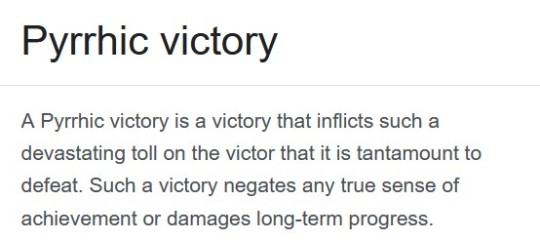


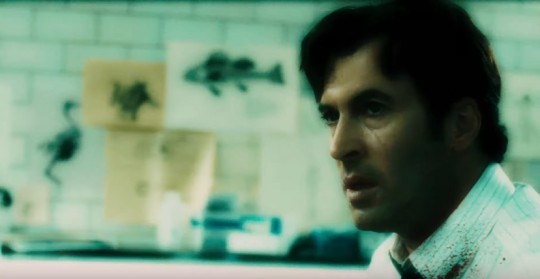


Peter Strahm haunting the narrative of Saw VI
// Wikipedia on pyrrhic victories / Mr.Kitty - Destroy Me / Joshua Jennifer Espinoza: Things Haunt //
#saw vi#peter strahm#mark hoffman#coffinshipping#hoffstrahm#sawposting#saw tag#look I know he doesn't Really haunt the narrative in that movie#because it's not treated with that much weight#let me feel fine and normal about these two in peace thank you#gore //
524 notes
·
View notes
Photo

DIG A DOUBLE GRAVE
#better call saul#lalo salamanca#jimmy mcgill#gus fring#howard hamlin#kim wexler#mike ehrmantraut#bcs spoilers#fanart#blood/#who up thinking about being trapped in a never-ending cyclical revenge narrative with the weight of your sins
4K notes
·
View notes
Text
Metal Sonic being voiceless and that being played for the horror, but less in the way of "he doesn't physically have a voice box" and more in the sense that he's voiceless metaphorically.
Not only does he not possess the voice box, but he doesn't have any tools to communicate. He's never offered pen and paper. Never given the opportunity to write digital reports except with only the briefest of words. Never taught even a scrap of sign language, as crude as such a communication would be due to his lack of facial features.
If you handed him a speech generating device, would he even know what to do with it?
#sth#metal sonic#THAT'S the kind of angst I love exploring your honor#idk man. something about alternative communication methods.#it's a mini pet peeve of mine for Metal to just get a voicebox installed in redemption fics without a blink of an eye#like! that's a huge metaphor you're handling with that!! you're missing all the interesting stuff by just 'curing' him then and there!!!#you are literally giving a voiceless character a voice for (effectively) the first time and you don't feel the narrative weight of that??#and I know he's a robot but the idea of him being instantly 'cured' is. . . eh?#It's not my favorite. I'd much rather explore other options.#playing around with this in my longfic hence the post about it
811 notes
·
View notes
Text
yea so the thing with steph's death is that i'm genuinely of two minds here actually:
on one hand it *does* fall under the traditional complaints of fridging being that it was a senseless, violent death of a female comics character whose death is used largely to cause bruce & tim pain ergo she was fridged
on the other hand, unlike a lot of female characters who have been fridged through the years (babs being the big one, shondra kinsolving being another huge one), steph's death and the lead up to it, despite dripping in misogyny, actually do lend her a ton of agency and personal narrative growth specific to *her* that other senseless female deaths and maiming aren't usually afforded. the fact that her death has an entire narrative arc leading up to her death (misogynistic as it may be) about her learning and deciding for *herself* what being a hero truly means to her, her fortitude despite black mask's torture and her pushing through to get herself to leslie's clinic to still try and help despite the horrors she just underwent is there to further *her specific* heroic narrative leading up to her death, not necessarily just to cause bruce pain. even her death--which has a lot of very problematic aspects to it, don't get me wrong--is focused on whether she finally achieved her goals of being a good hero, what she always wanted to be. it's horrific and misogynistic, but the entire event of war games leading to steph's death revolving and stemming from steph's mistakes -> steph's redemption->steph's death is fundamentally about her and her agency leading into her death. it's not until war crimes when it comes out she was actually killed specifically to character assassinate another female character in bruce's life & cause him anguish about leslie's betrayal that makes it more of a fridging than her actual death and the events leading up to it.
#does this make sense idk#the thing about fridging being that. it does need to only be about the man & the man's response#but a character's death is almost always inherently there to further another character's motivations#so a character death at its core isn't necessarily fridging even if it's in the service of another character's story#because death means things to people & if a death carries the appropriate amount of narrative weight#then it's just a part of the story being told#anyways honestly gavin king was the main fridged character of war games. he had absolutely no agency in his death.
100 notes
·
View notes
Text
Actually you know what I need to rant about this: while literati is technically a good girl x bad boy dynamic it is written so incredibly well and avoids so many pitfalls and stereotypes that it makes a good girl x bad boy hater like myself (I’m only half joking — I don’t think any trope is inherently good or bad but I tend to dislike most pairings with this dynamic) fall head over heels for their story and relationship.
So much of what makes the two of them work is the contrast between how others perceive them and how they truly are. Don't get me wrong, there are plenty of people who understand who Rory is as a person (Lorelai, Lane, Paris, Richard and Emily to a certain degree for starters), but she's constantly met with the expectation that she just does good and is supposed to make everyone proud 24/7. Stars Hollow as a group especially are big on this, as seen f. ex. through how Taylor takes Rory's one comment about an inappropriate DVD and twists the whole thing into a censorship crusade and makes Rory its poster-child even though she wants nothing to do with it and tells him so repeatedly. But instead of hearing Rory disagree with him (like he would Lorelai and Luke) he assumes that she actually agrees with him - and why shouldn't she when she's the perfect sunshine paragon of good who would never disagree with her elders? Also her grandparents treat her as incredibly fragile and childlike, like she must be too innocent to ever do anything wrong and so whenever she does something it has to be somebody else's fault (usually Lorelai, but occasionally Jess or whoever else was present). Time and time again Rory is treated like something innocent and naive and weak — but not by Jess. He sees her as a person.
And it obviously goes the other way too. Jess is treated like shit by pretty much everyone else. Either people hate him unprovoked or very much provoked (he did do a lot of pranks in his first few weeks and while I'm a Dean-hater I'm not blind to how much Jess picked fights with him), or they’ve simply given up on him. He tells Rory himself that every authority figure he had back in New York gave up on him too, from teachers to principals to his very own mother. But Rory doesn’t treat him like a lost cause, she treats him like the smart, brilliant and asshole-ish teen that he is. By having faith in him she also often holds him more accountable than others. Where f. ex. Lorelai or the other adults just roll their eyes, Rory physically drags Jess into doing his shifts at the diner. While others write him off, Rory chews Jess’ ear out for not helping Luke more and for willfully making enemies out of the Stars Hollow adults.
They don't put each other on pedestals or below each other. Jess doesn’t try to make a sinner out of Rory and she doesn’t try to make a saint out of him. There’s genuine respect between them. They expect each other to have integrity and treat others with kindness and honesty, and the rest is good old chemistry and common interests.
I particularly love how in so many of their scenes (especially pre-relationship) when they spend time alone they just get to be these goofy nerdy kids. They argue about controversial authors and dig through records shops and eat hot dogs and make fun of each other and try to make each other laugh. It’s not just sexual chemistry as it too often is in a dynamic like this (and often uncomfortably sexual when writing teenagers - looking at you Gossip Girl), and not just well written intellectual chemistry — they have platonic chemistry too. A hell of a lot of it actually.
While I don’t think ASP wrote them through a purely deconstructionist lens on the good girl x bad boy dynamic (if she did plan on writing the dynamic at all), there is something to be said about how where many around them treat them like stereotypes they treat each other like people. To so many people, Rory is a perfect small town princess, a little miss sunshine with booksmarts for days but too delicate and sweet for anything with grit and weight. To a lot of the same people and many more Jess is a pathetic brutish and maniacal lost cause, hell personified in a chainsmoking leather-wearing teenager. But to each other they are actual human beings. Kind and mean and flirtatious and scared and reckless and smart. Rory really thinks that with the right motivation and mindset Jess can be the kind who does (and at the end wrote) incredible things. Jess really believes that with a little more practice and support to step out of her comfort zone she can be the amazing journalist she wishes to be.
They don’t have this stupid «we’re so bad for each other but we can’t stay away» thing that too many trope users rely on and don’t even justify in the plot. Everyone else might think they’re not fit for each other, but they knew they were each other’s person from the very first day.
#where a lot of good girl x bad boy dynamics are about opposites attracting#what draws Rory and Jess towards each other is how much they resonate with each other#the books the weight of expectations and assumptions the passion for more in life#they don't look at each other and see a sexy alien world they look at each other and see themselves#me rant because me unnecessarily passionate about this#again I don't inherently hate the good girl x bad boy dynamic#there's just so many examples of doing it badly out there#like I don't even need the dynamic to be morally good I just need it to be justified in the narrative#and to not just rely on the same old “it's so bad but it feels so good” and relying on stereotypes over actual character writing#Rory and Jess is one of the ways this dynamic is actually done right and it's because ASP doesn't dumb them down#or take the dynamic for granted just because it's popular and bound to have an audience#literati#gilmore girls#rory gilmore#jess mariano#rory x jess#gilmore girls meta#my meta#also extra because I can't contain myself
117 notes
·
View notes
Text
Been a couple of years, but I still think fondly of Grace Monroe from Infinity Train for achieving that very rare redemption arc narrative of "the people you hurt are allowed to sever all ties, and you can still become a better, happier person."

#grace monroe#grace infinity train#infinity train#in a sea of demands that you must always forgive the people who hurt you no matter what#it was nice to see a plot that gave good weight to feelings and motivations on both side of the equation#hm.#come to think of it#it seems a lot of redemption arcs usually go the route#of redemption through death#or very quick if not immediate acceptance into team the people you traumatized#much more rare to see a redemption arc#where the one on the journey to redemption has to accept that at least some people they've hurt can't or won't forgive them#but that this doesn't automatically mean they can't become a kinder person#hell in grace's case it was pretty shocking/refreshing to see that it was precisely because someone set a hard no-contact boundary with her#that she lost someone she loved but still hurt#which really forced her to reconsider what she was doing#it was a true 'oh no not the quencies' kind of story#but also a 'you will accept the quencies and go forward with your life & hard gained knowledge' narrative#redemption arcs
210 notes
·
View notes
Text
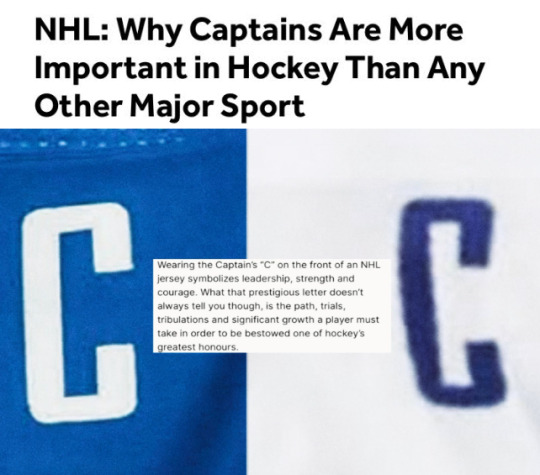
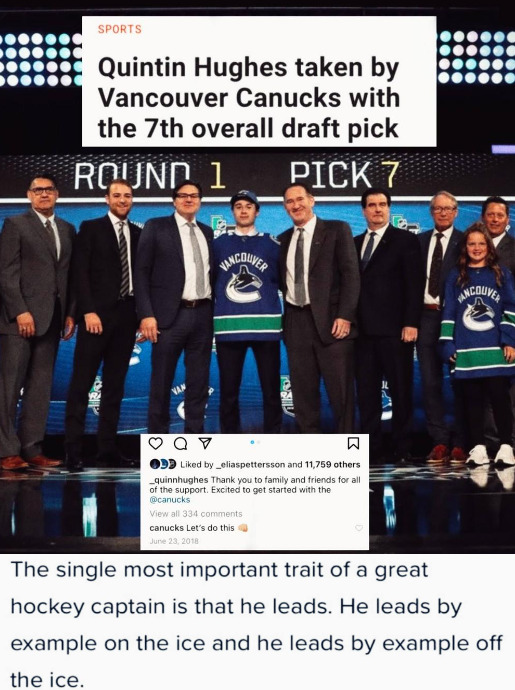
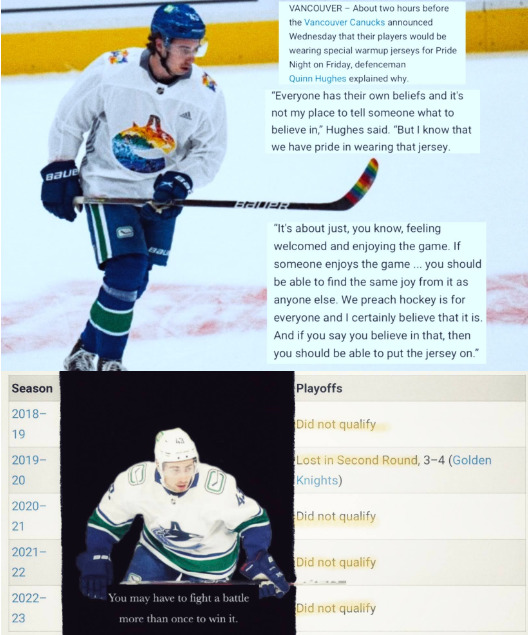
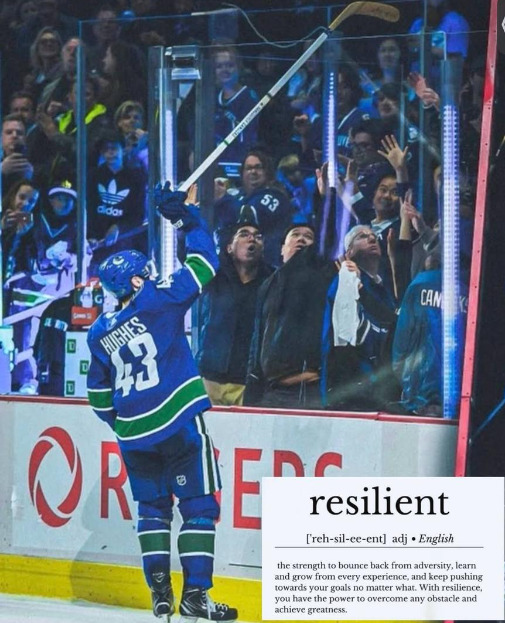
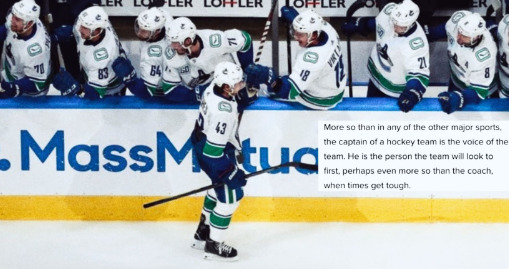



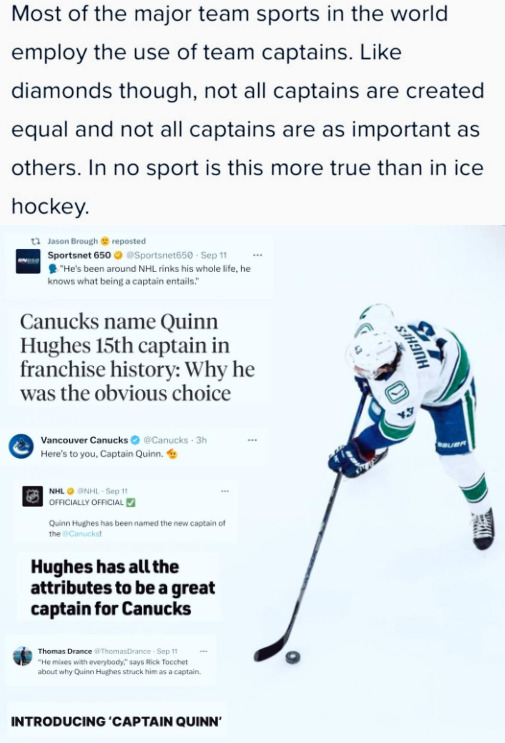
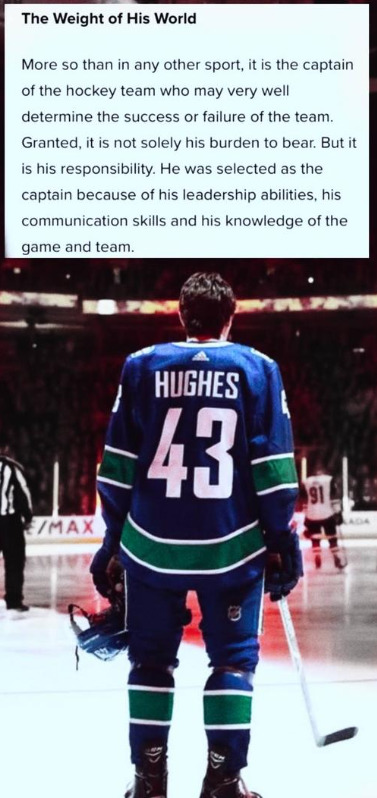
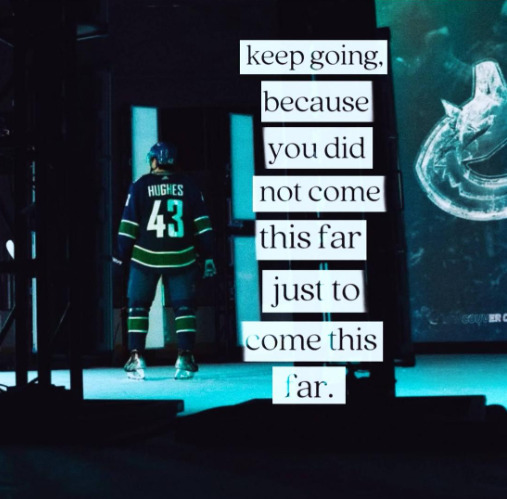
quinn hughes is the fifteenth captain of the vancouver canucks!
thank you to @swaggypsyduck for all the help with this edit🫶
#smth smth being crushed by the weight of the narrative and still getting back up again#he is unbelievably eldest daughter coded#the horrors of the vancouver canucks but you care a whole lot about your teammates and your team#i'm so happy for him and i can't wait to see what he will do as captain#captain quinn#<- !!!!!!!!!!#quinn « eldest daughter » hughes#quinn hughes#huggy bear#hughes brothers#vancouver canucks#canucks#web weaving#nhl#nhl hockey#k.webweaves#quinn hughes edit#quinn hughes web weave#quintin hughes
335 notes
·
View notes
Text

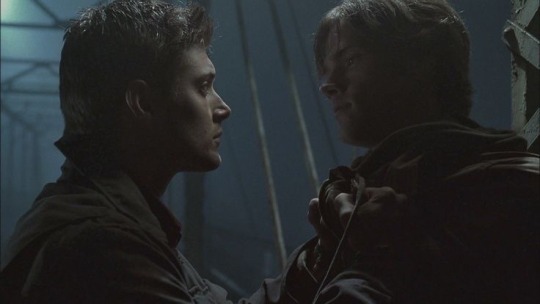




1.01, "Pilot" | Stephen Adly Guirgis, "The Last Days Of Judas Iscariot" " | 5.22, "Swan Song"
#please consider!! dean as judas to sam's christ allegory#sam considers himself the judas between them!! but narratively speaking! it's dean!! i feel insane#yeah cain and abel were the first fratricide but have we acknowledged the first toxic yaoi. jesus and judas#yeah the narrative frames sam's blood drinking as the big Act of Betrayal but#if you consider...that it's sam sacrificing himself by bearing the weight of the actual devil. to save humanity#sam drinking demon blood in the first place in order to save possessed ppl without killing them...literally taking on the sins of men#dean is both judas delivering his kiss AND the authorities coming to arrest jesus in gethsemane when he locks sam up#dean doesn't believe in god but he needs to live in the light and grace and love of his little brother#his faith and love in sam. being his connection to his humanity.#j.edit#spn edit#sam winchester#dean winchester#comparatives#wincest#samdean
138 notes
·
View notes
Text
soulmate "we would find each other in every lifetime" au, but whenever you find each other there is always just a slight mistiming.
in some instances you meet mere moments before disaster strikes. in others you are forced to be enemies due to untimely misunderstandings. sometimes you only catch a glimpse of the other in passing before they disappear as though they never existed. there would be the odd occasion where only one of you recognised the other, with them not knowing who you are or of the history which haunts your conscience.
and then there would be times you find yourself desperately holding the other, the tears which burn tracks down your cheeks being the only source of warmth on their cold skin.
despite the unnerving predictability fate has in store for you, you both cannot help but to hope that maybe — just maybe — this next lifetime will be kinder to you both; kinder in a way that your souls are not torn apart before they can even meld together.
(though such sentiment never comes true, it doesn't stop the feeble hope from burning aflame when you cross paths every lifetime. repeatedly, incessantly, and without fail.)
#sophie talks : concepts <3#smth smth desperate love and tragedy and doomed by the narrative in more ways than one#im in a funky angsty tragedy driven mood if u couldnt tell#reincarnation soulmate we would find e/o in every lifetime but its right person wrong time..... sighs......#honestly this could work in both ways: u both remember ur past lives and share the tragedy or only one of u remembers and bears the weight#and if its both then the lifetimes where only one of u remembers follows through and they remember in the next life who u are#man i still need to finish the blade soulmate au fic i cant keep making soulmate wips...... but i wanna write this..... but no.... but yes.
73 notes
·
View notes
Text
another unfriendly reminder: at Maigu Ridge, the sex is not what killed Shen Qingqiu. AFTER the sex, when Binghe was coherent again, Shen Qingqiu started drawing the excess demonic energy out of Xin Mo himself. and once Binghe realized what he was doing, they destroyed the sword together.
did we forget "'Dying together' also included a 'together.' It didn't seem that bad." ????
#DYING TOGETHER ALSO INCLUDED A TOGETHER!!#死在一起也包含了在一起!!!!!!!!#I think that's another poetic thing about this scene - that the 'papapa to save the world' didn’t save the world really#it saved binghe#and then they saved the world together#it's just such a perfect echo of the whole novel's commentary on false desires of narrative tropes vs the real weight of individual choice#they kill me oml#in the next scene when shen qinqiu is all worried bc the system can only save him and he's worried binghe already left#and when we learn he DID try to follow shen qingqiu...#my heart my heart my heart#they're everything#svsss#scum villain's self saving system#bingqiu#shen qingqiu#luo binghe#svsss meta#人渣反派自救系统
118 notes
·
View notes
Text




kim hieora on the set of bad and crazy (2021)
#bad and crazy#kim hieora#her in this role was sooooooooo goooood#only qualm was she didn't get enough narrative weight or fight scenes#and now the same team casted in her uncanny counter#so many fight scenes coming so excited
214 notes
·
View notes
Text
something something roman thinks he didnt say i love you and keeps asking if he said i love you and if it was real no one would ever know whether or not he did but its narrative its television so we know. and we know he didnt. in the behind the episode vid they spoke about how the camera is always on the siblings because it can never "let them off the hook". everything we do today will be what we did the day our father died. something something medium is everything it circulates it eats and spews back out it fossilises. its a tv show about tv
#IN MANY WAYS ITS KIND OF ACTUALLY JUST LIKE RIVERDALE#i went off the rails here a bit but theres sth in the core of this that holds weight i think#honestly i dont usually think of succession as a trapped in the narrative thing like i do abt other stuff. and i still dont#but it just suddenly hit me that roman in fictional universe will never know whether he said i love you but i do and i can always check#succession#succession spoilers
345 notes
·
View notes